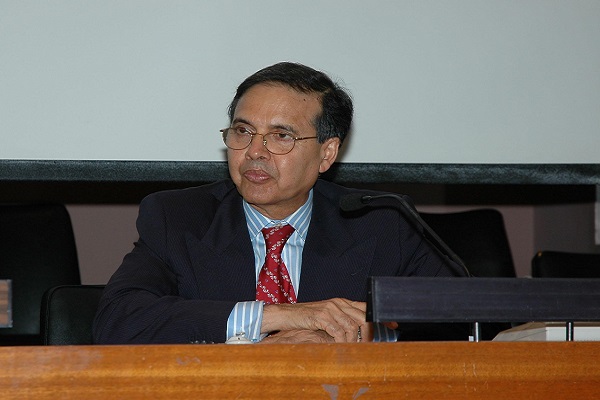
During the recently held Global Forum on ‘Access & Connectivity: Innovative Funding for ICT for Development’ at Kuala Lampur, Malaysia, Jayalakshmi Chittoor and Vignesh Sornamohan of Centre for Science Develeopment and Media Studies (CSDMS) caught up with Sarbuland Khan, Executive Coordinator, United Nations Global Alliance for Information and Communications Technologies and Development (UNGAID). Prior to joinining UNGIAD as an Executive Coordinator, Sarbuland was assigned to the role of Director, ECOSOC Support and Coordination of the United Nations Department of Economic and Social Affairs, where he directed the preparation of the Ministerial meeting of the Economic and Social Council on ICT for development and has been responsible for its follow-up and the establishment of the United Nations Information and Communication Technology Task Force. Here, his opinions, views and perspectives on the role of UNGAID in creating an ICT-enabled society are discussed.
What was the key learning from the UNGAID meeting held recently alongside the World Congress on Information Technology (WCIT) 2008 conference in Kuala Lumpur, Malaysia?
The UNGAID conference was most encouraging. We talked about innovative ICT funding mechanisms. There were presentations that addressed the issue of access, and connectivity for improving people’s livelihoods, empowering them and creating new opportunities for economic growth.

How will the lessons feed into the coming WGIG forum to be held in India in December 2008?
The key recommendations that we make is that when the four pillars of development (education, entrepreneurship, governance and health), cooperate among themselves and collaborate, joint projects with lower cost input and higher outcome result. This is the power of UNGAID. The findings of this meeting, focusing on resources highlighted that resources do not mean only cash but also expertise sharing, capacity building, etc. which were discussed in this meeting.

How does UNGAID engage with the private sector?
Private sector engagement is very important and plays a key role in committing to the UNGAID. Since the constitution of Intel as Chair, we have had a very positive response from the private sector. This meeting in Kuala Lumpur has been organised in cooperation with World Information Technolgy and Service Alliance (WITSA), GSM Association (GSMA), Wipro, software firms, electronics goods manufacturing association, etc. who have joined hands to support the vision and mission of UNGAID.
How do they actually get connected with you?
The process is really very simple. We have the Strategy Council and the Steering Committee, both of which are involved in governance and there is also an Experts’ Advisory Council. Most of the organisations who wish to join hands with UNGAID are joining as Champions Network members. Just a few minutes ago, two organisations have evinced an interest to join, and they are already part of the UNGAID Champions Network. People can easily join hands and pledge their support. With respect to large organisations and networks, we also enter into specific MoU and Letters of Intent (LoI), identifying areas of support and cooperation.
Could you share with the readers of i4d magazine, the details of the eSDDC CoE project?
This project has been initiated to enable developing countries to share scientific knowledge and databases with countries like China, India, Brazil, South Africa, all of which have a vast knowledge base, but remain unavailable. This network is envisaged to allow free flow of information and knowledge, scientific publications, access to journals, etc. so that they can gain value especially for Least Developed Countries (LDCs) who cannot afford expensive learning materials, journals, books, etc.
Be a part of Elets Collaborative Initiatives. Join Us for Upcoming Events and explore business opportunities. Like us on Facebook , connect with us on LinkedIn and follow us on Twitter, Instagram.











